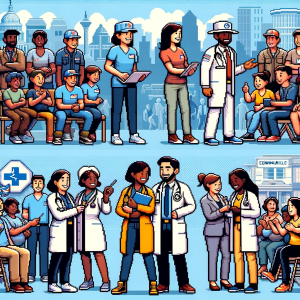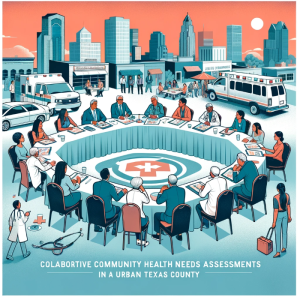
Community Health Workers: Pioneers in a New Healthcare Era
Over at Dawn Chorus, we do a huge amount of work evaluating the roles and effectiveness of Community Health Workers. As such, this is a great time to look into the evolving roles and tasks of CHWs.
The article Community Health Workers at the Dawn of a New Era: 5. Roles and Tasks delves into this evolution, presenting a comprehensive analysis of the growing scope and impact of CHWs in global healthcare systems. This blog aims to distill the key insights from the article, making them accessible to a high school-educated audience while underscoring their significance for public health practice.
The Rising Importance of CHWs
Traditionally, CHWs have been crucial in maternal and child health. However, their roles are expanding to address diverse health challenges such as noncommunicable diseases, mental health, and elder care. This expansion acknowledges their vital role in healthcare delivery, especially in low- and middle-income countries where healthcare resources are often scarce.
Key Considerations for Program Planners
The article provides ten essential questions for program planners when determining CHW roles and tasks, focusing on effectiveness, safety, community relevance, and practicality. These questions serve as a guideline to ensure that the roles assigned to CHWs are impactful and sustainable.
The Complexity of Role Assignment
Assigning roles to CHWs is not a straightforward task. Planners must consider various factors, such as training needs, health system support, work location, workload, and program costs. Moreover, ensuring that these roles are culturally appropriate and accepted by the communities and the CHWs themselves is crucial.
The Multi-faceted Role of CHWs
CHWs play diverse roles, from health promotion and preventive care to clinical services and epidemographic surveillance. Their ability to act as a bridge between the community and the healthcare system is invaluable, especially in regions with limited access to healthcare facilities.
Building Trust and Providing Emotional Support
A significant yet often overlooked aspect of CHWs’ work is their role in building trust within communities and offering emotional and social support. This aspect is particularly crucial in areas where healthcare access is limited and CHWs often serve as the first contact for health-related concerns.
Challenges and Stressors
The expanding role of CHWs brings its own set of challenges. Work overload, stress, and the need for continuous training and support are common issues. Addressing these challenges is vital for the sustainability of CHW programs and maintaining the CHWs’ well-being.
Conclusion: Empowering CHWs for Effective Healthcare Delivery
Empowering CHWs through co-designing their roles and providing adequate support can lead to more effective healthcare delivery. By recognizing and leveraging the unique position of CHWs as community intermediaries, healthcare systems can become more resilient, adaptable, and effective in meeting the diverse health needs of populations.
For Public Health Practice
The evolving role of CHWs is a significant development in public health. As we look towards more integrated and community-centered healthcare models, CHWs stand at the forefront, bridging gaps and bringing healthcare closer to those who most need it. The insights from this article offer a roadmap for enhancing the effectiveness and sustainability of CHW programs, ultimately contributing to stronger, more resilient health systems.
Public Health News: In Your Inbox.
Step into the role of a public health change-maker with ‘This Week in Public Health.’ Each issue brings you closer to the heartbeat of community health, innovative research, and advocacy. It’s more than news; it’s a platform for transformation. Subscribe for free and join a community of informed individuals driving positive change in public health every week!



